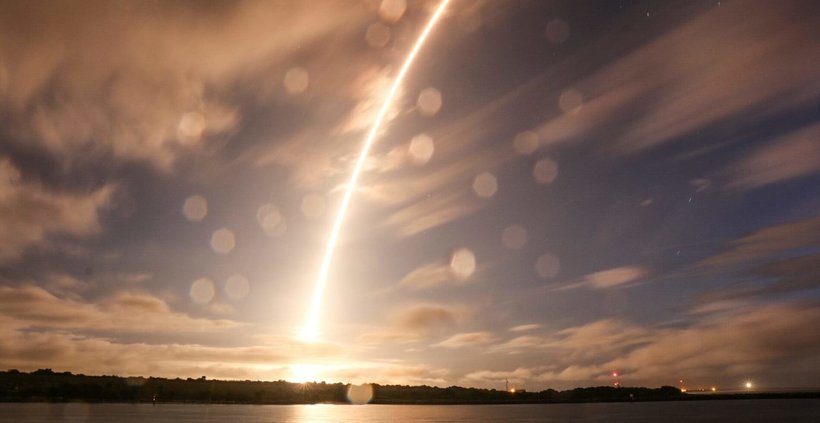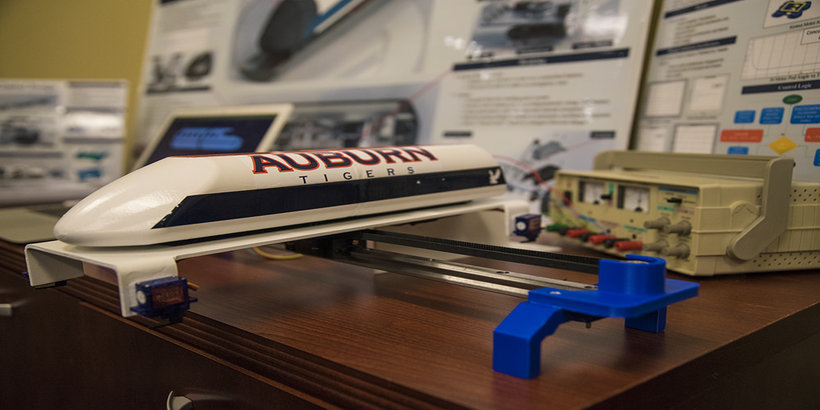
WASHINGTON — A single paragraph in the 2,000 page spending bill currently making its way through Congress likely saved hundreds of jobs at an Alabama rocket company, and perhaps untold thousands more jobs that could come as the momentum of Alabama’s aerospace sector continues to build.
For over a decade now, the U.S. military has relied on Russian-made RD-180 rocket engines to launch its satellites into space. Last year, however, Congress moved to ban the use of Russian rockets as punishment for President Vladimir Putin’s military incursion into Ukraine.
The 2014 National Defense Authorization Act, which banned the Russian rockets, said that Congress views both Russia and China as “a serious growing foreign threat” to U.S. national security space systems, and called on the Pentagon to develop “a next-generation” American rocket engine by 2019.
But while there is near unanimity on the prudence of ending the United States’ reliance on Russian technology for our various space programs, an immediate ban would have created a years-long window in which the U.S. would not be fully equipped to launch some of the country’s most important defense assets into space.
United Launch Alliance (ULA), an Alabama-based joint venture between aerospace giants Lockheed-Martin and Boeing, currently uses the Russian rockets to accomplish its work for the U.S. Air Force. ULA is developing its own satellite launch rocket system, but it is several years away from completion.
The company, which employs roughly 800 Alabamians at its state-of-the-art 1.6-million-square-foot facility in Decatur, has been one of the U.S. government’s most reliable partners since its founding in 2006, but the Russian rocket engine ban would have been a difficult blow for the company to withstand in the short term, placing hundreds of jobs in jeopardy.
Meanwhile, the ban would be a victory for SpaceX, the company founded by billionaire tech entrepreneur Elon Musk. SpaceX is developing its own rockets in California. The company has received significant press coverage for being a “private” space alternative to NASA, but the facts show the company has received the overwhelming majority of its funding — billions of dollars — from the United States government. The L.A. Times called the financing model “a public-private financing model underpinning long-shot start-ups.”
“Musk and his companies’ investors enjoy most of the financial upside of the government support, while taxpayers shoulder the cost,” explained the Times’ Jerry Hirsch.
Sen. John McCain (R-Arizona) has been one SpaceX’s most vocal backers and played a prominent role in getting the Russian rocket ban language put in place.
Sen. Richard Shelby, however, delayed the ban by inserting a paragraph into Congress’s massive “omnibus” spending bill that will give U.S. rocket engine developers the time to develop an American alternative to replace the Russian RD-180.
“The language included in the omnibus would reverse the reckless restriction put on the use of the RD-180, which undermines our national security,” Shelby told Yellowhammer. “This language directly addresses the concerns of our nation’s military leaders who argue that there will be a multi-year gap in access to space for national security launches under current policy. While I strongly believe that we should not be dependent upon any foreign power for access to space, it is far too risky to ban the RD-180 until we have a domestically-produced engine that has the same capabilities.”
Shelby pointed to a letter from Air Force officials stating that as many as 18 RD-180s will be needed between now and 2022 as evidence that the U.S. needs more time to develop a replacement.
Alabama’s aerospace industry has been expanding quickly in recent years, particularly in the wake of Airbus locating its North American assembly plant in Mobile. The direct jobs created by giants like Airbus and ULA are joined by thousands more jobs created by their suppliers, who often expand nearby as well. And as Alabama has experienced with the automotive industry, momentum can build over time and lead to exponential job growth. Some analysts believe that is exactly what is happening with Alabama’s booming aerospace industry.
It took a single paragraph in a giant 2,000 page bill to keep the momentum from being slowed. For Alabama — and ultimately for U.S. national security — that is a pretty important paragraph.
RELATED: Airbus expansion could lead to Alabama aerospace boom








